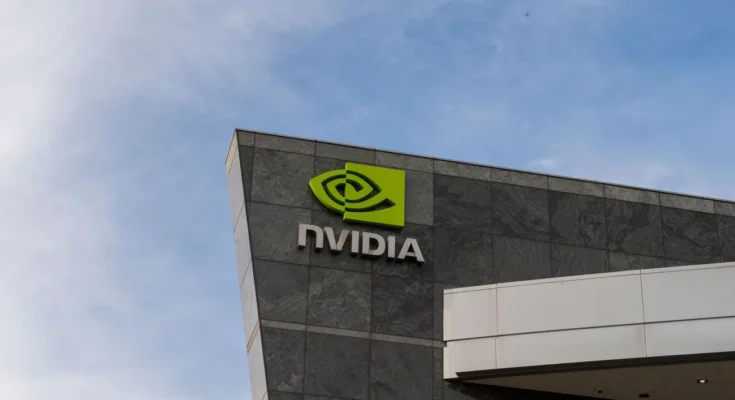The AI boom is hurting chip companies’ business Nvidia continues to grow explosively – contrary to recent concerns about a price bubble in the stock market. In the last quarter, sales jumped 62 percent year-on-year to $57 billion (49.4 billion euros). Nvidia beats Wall Street expectations. In fact, compared to the previous quarter, there was an increase of 22 percent.
Nvidia’s chip system has become a mainstream technology software with artificial intelligence. They are used for training complex AI models, for example for ChatGPT chatbots – as well as for operating software.
Nvidia’s results have become an indicator of the state of the AI industry. Because heavyweights like Google or Microsoft filling entire data centers with Nvidia chips – and AI companies like ChatGPT developer OpenAI are counting on them too. When massive investments are announced in artificial intelligence data centers, it’s safe to assume that most of those investments will end up in Nvidia.
Fear of the AI bubble
However, in recent weeks, there has been growing concern in the stock market that high expectations for future businesses with artificial intelligence could lead to a bubble in the share prices of technology companies.
Most importantly, the question that arises is whether the hundreds of billions of dollars invested in expanding AI data centers can be recouped in the future.
Previously, investors seemed to reward higher investment announcements with price increases. But the real turning point came with the reaction to the words of Facebook founder Mark Zuckerberg, who said they would rather build too much capacity than risk having too little capacity. Since then, Meta shares have lost a fifth of their value.
Nervousness in the market
Nvidia’s market value fell from $5 to about $4.5 trillion in a few weeks. After sharp price increases, chip companies remain the most valuable companies on the stock market. However, investors are worried that the chip company’s business will suffer if AI companies put a brake on their investment.
In recent weeks, several people have left Nvidia. Japanese technology group Softbank is selling its entire $5.8 billion stake in Nvidia to reallocate the money to other AI investments. Famed venture capitalist Peter Thiel’s hedge fund sold about $100 million of its stake in Nvidia in the third quarter.
Investments of up to four trillion dollars per year
Nvidia boss Jensen Huang addressed those concerns directly after the quarterly figures were presented. “There’s a lot of talk about an AI bubble,” he said in a conference call with analysts. “But from our perspective, we see something very different.” Many industries are just starting to undergo transformation Artificial intelligence with so-called agent software that can act independently – and requires more computing power in the background. AI will also be used in these industries.
Nvidia estimates annual investment in infrastructure expansion could reach three to four trillion dollars by the end of the decade.
Investors appeared calm: Nvidia shares rose about five percent in after-hours trading. Prices of other chip companies also rose. For Nvidia’s main customer shares Google, Microsoft, Amazon and Meta everything is also improving.
For industry analyst Patrick Moorhead, Nvidia’s numbers mean more confidence in the future of the AI industry. “Nvidia is a pioneer in this area – and that shows that demand continues,” Moorhead said on business channel CNBC.
Growth even without business in China
The bottom line is that Nvidia increased its quarterly profit by 65 percent year-over-year to $31.9 billion. The group’s earnings per share came in above analysts’ estimates. Nvidia also clearly exceeded their expectations with sales estimates of $65 billion for the current quarter. On average, market experts estimate sales estimates at 61.5 billion dollars.
Nvidia continues to achieve growth without the once-important Chinese market, where the group currently no longer has any business following US export restrictions and government countermeasures in China. CFO Colette Kress reiterated that Nvidia also wants to sell chips to China to ensure global leadership of the US technology. Huang has repeatedly warned that halting sales would create a powerful rival in China that could then compete with Nvidia in the global market.
© dpa-infocom, dpa:251120-930-315746/1



